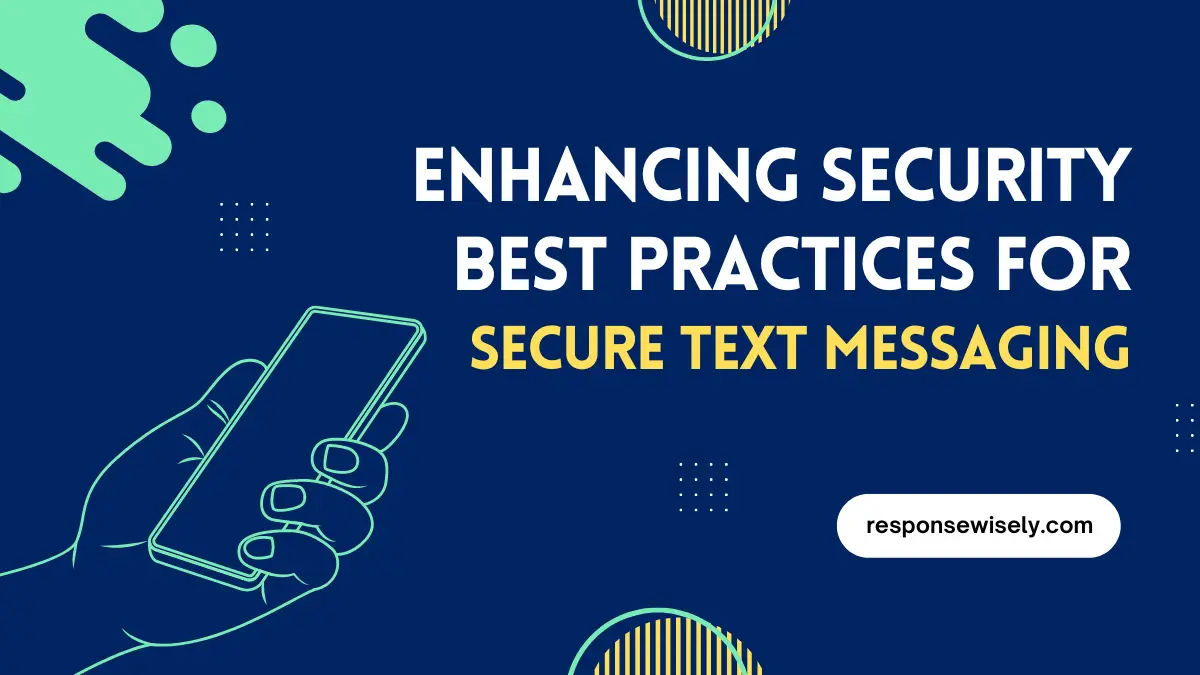In modern digital era, ensuring the security of our communications is more crucial than ever. When it comes to text messaging, implementing best practices for secure communication is essential to protect sensitive information from falling into the wrong hands. As an expert in cybersecurity, I’ll guide you through the top strategies to enhance security in your text messaging practices.
From encryption to authentication, there are various techniques that can be employed to bolster the security of your text messages. By following these best practices, you can minimize the risk of data breaches and unauthorized access to your private conversations. Join me as we investigate into the world of secure text messaging and learn how to safeguard your communication channels effectively.
Importance of Secure Text Messaging
Understanding the Risks
In today’s digital world, cyber threats are on the rise, putting sensitive information at risk. Without secure text messaging practices, data breaches and privacy leaks can occur, compromising confidentiality.
Regulatory Requirements
Compliance with regulations like HIPAA and GDPR is crucial for protecting personal data shared through text messages. Failure to meet these requirements can lead to legal consequences and financial penalties.
By understanding the risks and meeting regulatory standards, individuals can ensure the security and integrity of their text communications.
Best Practices for Secure Text Messaging
Encrypted Messaging Apps
When it comes to securing text messages, using Encrypted Messaging Apps is crucial. These apps ensure that your messages are protected with end-to-end encryption, making it extremely difficult for unauthorized parties to access the content. Some popular encrypted messaging apps include Signal, WhatsApp, and Telegram. By leveraging these platforms, you can enhance the privacy and security of your text communications significantly.
Password Protection
Implementing strong password protection is another essential practice for secure text messaging. Ensure that your device, messaging apps, and any other relevant accounts are safeguarded with unique and complex passwords. Avoid using easily guessable passwords and consider using a reliable password manager to generate and store your login credentials securely. By strengthening your passwords, you add an extra layer of defense against unauthorized access to your messages.
Two-Factor Authentication
Enabling two-factor authentication (2FA) is a powerful way to fortify the security of your text messages. With 2FA, even if your password is compromised, an additional verification step is required to access your accounts or devices. This can be in the form of a one-time code sent to your mobile device, a biometric scan, or another secure method. By enabling 2FA on your messaging apps and devices, you significantly reduce the risk of unauthorized access and enhance the overall security of your text communications.
I’ll now continue with more best practices for secure text messaging.
Implementation Strategies
Employee Training
Training employees on cybersecurity best practices is crucial for maintaining a secure messaging environment. Regular training sessions can educate staff about the importance of data protection, recognizing phishing attempts, and secure password management. By enhancing their awareness, employees become an essential part of the company’s defense against cyber threats.
Secure Network Infrastructure
Establishing a Secure Network Infrastructure is essential for protecting text messages from unauthorized access. Implementing firewalls, intrusion detection systems, and VPNs can help safeguard communication channels. Network segmentation and access control measures are also effective in minimizing the risk of data breaches within the messaging system.
Regular Security Audits
Conducting routine security audits is fundamental in ensuring the effectiveness of security measures. Scheduled assessments help identify vulnerabilities, assess compliance with security policies, and detect potential breaches. By performing regular audits, organizations can address weaknesses promptly and strengthen their overall security posture.
Key Takeaways
- Secure text messaging is crucial: In today’s digital world, the importance of implementing best practices for secure text messaging cannot be overstated to protect sensitive information.
- Compliance with regulations is key: Meeting regulatory standards such as HIPAA and GDPR is essential to safeguard personal data shared through text messages and avoid legal consequences.
- Use encrypted messaging apps: Leveraging encrypted messaging apps like Signal, WhatsApp, and Telegram ensures end-to-end encryption, significantly enhancing the privacy and security of text communications.
- Strengthen passwords and enable 2FA: Implementing strong password protection and enabling two-factor authentication adds extra layers of defense against unauthorized access to text messages.
- Employee training and security audits are critical: Conducting regular security audits and providing cybersecurity training to employees are vital components in maintaining a secure messaging environment and protecting against cyber threats.
- Establish secure network infrastructure: Implementing firewalls, intrusion detection systems, VPNs, network segmentation, and access control measures are crucial for safeguarding communication channels.
Conclusion
Implementing secure text messaging practices is crucial for safeguarding sensitive data and preventing cyber threats. By prioritizing employee training, establishing a secure network infrastructure, and conducting regular security audits, organizations can enhance their overall security posture in messaging systems. Stay proactive in addressing vulnerabilities, complying with security policies, and fortifying communication channels to mitigate risks effectively. Remember, a strong security foundation is key to protecting your organization’s valuable information and maintaining trust with stakeholders. Embrace these best practices to ensure secure text messaging and uphold data integrity.
Frequently Asked Questions
Q: Why is employee training on cybersecurity best practices crucial for secure text messaging?
A: Employee training ensures awareness of threats, such as phishing attempts, and promotes responsible handling of sensitive data, reducing the risk of security breaches.
Q: What are essential components of a Secure Network Infrastructure for secure text messaging?
A: Components include firewalls, intrusion detection systems, VPNs, network segmentation, and access control measures, which safeguard communication channels and prevent unauthorized access.
Q: Why is conducting regular security audits important for messaging systems?
A: Security audits help identify vulnerabilities, ensure compliance with security policies, and enable prompt resolution of weaknesses to enhance the overall security posture of messaging systems.

